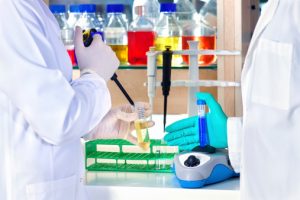 Type 2 diabetes affects more than one in 10 adults who are 20 years or older in the United States, with an estimated 1.5 million Americans expected to be diagnosed with the metabolic condition every year. Type 2 diabetes treatment primarily consists of managing symptoms and controlling blood sugar, however, new research suggests we are closer to finally obtaining a cure.
Type 2 diabetes affects more than one in 10 adults who are 20 years or older in the United States, with an estimated 1.5 million Americans expected to be diagnosed with the metabolic condition every year. Type 2 diabetes treatment primarily consists of managing symptoms and controlling blood sugar, however, new research suggests we are closer to finally obtaining a cure.
A disease with many complications
Type 2 diabetes (adult-onset diabetes) is a chronic condition that affects sugar metabolism, a source of valuable energy for your body. Insulin, a hormone used to facilitate this metabolism, is also affected, as cells of type 2 diabetic patients become resistant to its effects. While this condition was primarily seen to affect obese adults, more and more children are beginning to be diagnosed with this type of diabetes.
Advertisement
More concerning are the complications that having type 2 diabetes has on the affected. These include:
- Heart and blood vessel disease
- Nerve damage (neuropathy)
- Kidney damage (nephropathy)
- Eye damage
- Foot damage
- Hearing impairment
- Skin conditions
A team of researchers from Chalmers University of Technology and AstraZeneca has studied exosomes, tiny structures secreted by cells to allow intercellular communication. They have found that the actions of exosomes prevent the development of type 2 diabetes. Patients with the disease display exosomes that don’t have this ability.
Intracellular protein folding playing an important role
Our cells use protein to carry out tasks. To accomplish this, they are folded into specific three-dimensional structures beforehand. Occasionally, these proteins can become misfolded and behave incorrectly, eventually clumping together to form long fibers called amyloids. It is believed this amyloid aggregation is a cause of type 2 diabetes.
“What we’ve found is that exosomes secreted by the cells in the pancreas stop that process in healthy people and protect them from type 2 diabetes, while the exosomes of diabetes patients do not,” said Professor Pernilla Wittung Stafshede, who headed the study.
However, it is currently not known why this happens. Figuring out this mechanism will be the next step for the team. It could possibly provide the basis for development for new treatments and even a cure.
Related: Weight loss can reverse type 2 diabetes
